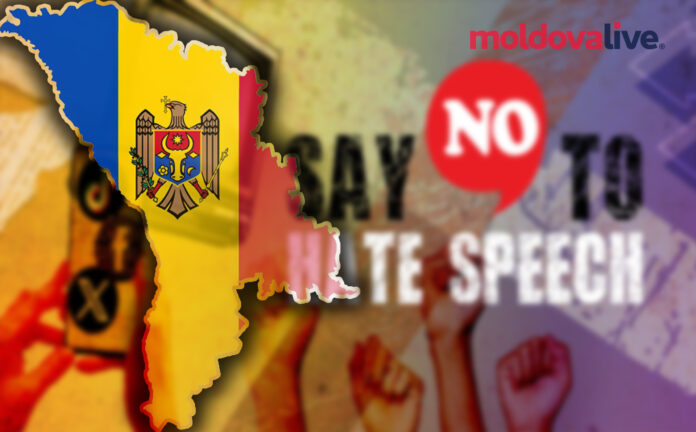Hate speech and discriminatory, homophobic, or sexist rhetoric is increasingly being used in the election campaign for the parliamentary elections. Even before August 29 – the date when electoral candidates were allowed to start campaigning – the Promo-LEX monitoring mission identified 233 cases of hate speech and incitement to discrimination, of which 162 occurred in an electoral context.
Discriminatory messages received approximately 2.5 million views, with three-quarters circulated via social media. The remaining messages appeared on the streets, at protests or rallies, or through online media and television.
Most often, the attacks targeted politicians, members, and supporters of political parties/electoral blocs, women, LGBT people, and vulnerable groups, including persons with mental health issues.
According to the Promo-LEX, the message containing threats from Igor Dodon directed at the PAS, in which he said he would “drag opponents by the neck and ears” from state institutions, accumulated around 100,000 online views.
FOR THE MOST IMPORTANT NEWS, FOLLOW US ON TWITTER!
Sergiu Butuc, representative of the “Inima Moldovei” party, made allusions to the death of Igor Grosu. Victoria Furtuna, leader of the “Moldova Mare” party, used homophobic rhetoric, portraying PAS and the LGBT community as “existential threats” to the state and family. Vasile Costiuc, leader of “Democratia Acasa,” continued the same rhetoric, describing LGBT symbols as “harmful propaganda” and contrasting the “silent majority” of traditionalists with a marginalized minority, according to the Promo-LEX.
Supporters and allies of Evghenia Gutul compared journalists to “bugs,” while the Telegram channel WTF Moldova portrayed PAS supporters as insects, the analysis notes.
In another part of the online space, former Deputy Prime Minister Alexandr Muravschi wrote on Facebook that politicians who divided the country should be “in a camp.” The statement coincided with the period of commemoration of victims of deportations to the gulag, intensifying the severity of the message.
FOR THE MOST IMPORTANT NEWS, FOLLOW US ON TWITTER!
Similarly, content creator Victor Shmidt suggested that President Maia Sandu and PAS members could face the fate of Ukraine’s “nebesna sotnya,” the protesters killed during Euromaidan, the Promo-LEX representatives noted.
Women involved in politics were also targets of sexist attacks. Lawyer Fulga Grabovschi and journalist Maria Vieru became subjects of sexist messages released by the Telegram channel “Ungureanu 112,” while Dorin Chirtoaca discriminated against Vladimir Voronin based on age.
“Regardless of form, incitements to violence, direct threats, insults, dehumanization, or sexist and ageist stereotypes, hate speech continues to be a tool for influencing public opinion during the election campaign. Amplified by social media and traditional media channels, this type of rhetoric not only further polarizes society but also normalizes violence as a political instrument,” the Promo-LEX observers said.
The Contraventional Code prohibits hate speech and imposes sanctions for violations, 12,500 lei for individuals, 20,000 lei for legal entities, political parties, or electoral blocs that use such messages during the election campaign.
In parallel, the Audiovisual Media Services Code prohibits broadcasting speech inciting hate on audiovisual programs. Television and radio stations that fail to comply risk fines or revocation of their broadcast licenses.


